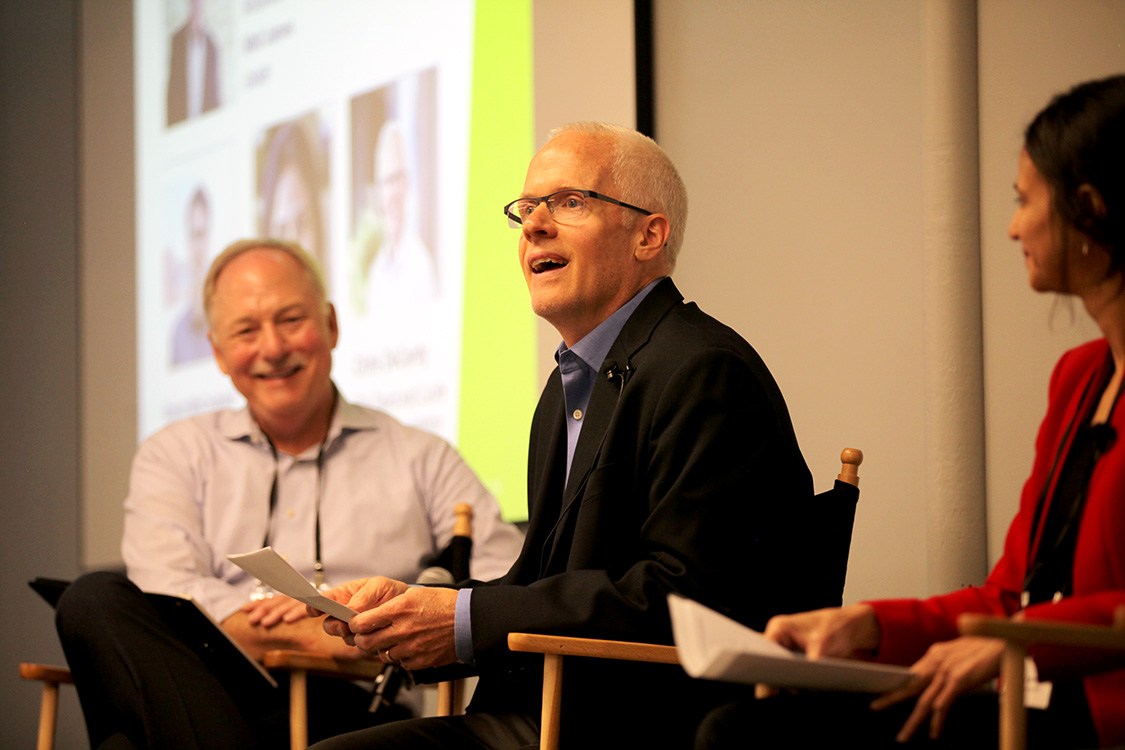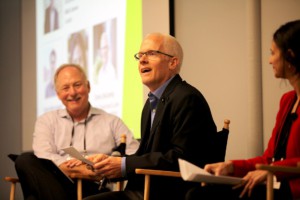
Philanthropy

Chris DeCardy, of the Packard Foundation, speaks at the Climate Solutions Convening
This summer solstice Tides brought together a diverse network of individuals and institutions committed to tackling the climate crisis at our Climate Solutions Convening. After a day filled with an array of solutions ranging from impact investments, to emerging technologies, to advocacy strategies, I can confidently say that we accomplished what we set out to do: to give people the sense of hope and optimism that we see everyday at Tides on one of the most complex and consequential issues of our time. I, for one, need to be reminded of the good news in the face of relentless challenges, and I sensed that the attendees appreciated the reminder, too.
Tides works at the nexus of funders, investors, corporations, and changemakers, and we know that addressing today’s environmental problems will require solutions that are larger than any one organization, policy, or sector alone. We have to cross boundaries to link sectors, communities, and cultures if we are to make progress. But climate change is such a big issue, it can be daunting to know where to start.

Chris DeCardy, of the The David & Lucile Packard Foundation, speaks at the Climate Solutions Convening
At the convening, Chris DeCardy, of The David & Lucile Packard Foundation, framed a great way to approach solutions:
“It’s about collaboration, but as we think about what climate issues to work on we need to ask two questions: Will it help us win faster? Will it help us win the win?”
It’s about collaboration, but as we think about what climate issues to work on we need to ask two questions: Will it help us win faster? Will it help us win the win?
Chris DeCardy, The David & Lucile Packard Foundation
Chris’ quote got me thinking about the lens that we should be using when deciding what actions, policies, and investments to pursue. For Tides, in order to “win the win”, we ask ourselves the following questions:
We need to approach climate change challenges as opportunities to create economic prosperity for everyone. This might look different in different geographies, but by maintaining a deep commitment to justice across cultural, economic, and racial lines, we can ensure those efforts promote social justice and economic equality. We’ve been doing this work for our entire history and can’t set it aside for a quick win here and there.
To create lasting, effective, systems-level change, stakeholders need to collaborate, innovate, and work at scale. As a nonprofit accelerator, we seek to identify innovative organizations that can scale quickly AND are committed to finding solutions that are just, fair, and equitable. We don’t have time to waste, so finding these organizations quickly is of the utmost importance, even if that requires a little smart risk-taking along the way.
This also means bringing together unlikely partners, such as working with environmental justice groups, with labor organizations, and with conservative politicians when it makes sense for bigger wins. We’ll need investors and philanthropies to help seed and scale, corporate partners that bring market leverage to sustainable supply chains, and innovative change makers who are committed to social justice and shared prosperity.
This is a systemic issue that requires action from all parts of society. In the words of Naomi Klein: “To change everything, we need everyone.”

Read the stories and hear the voices of social change leaders fighting for justice.